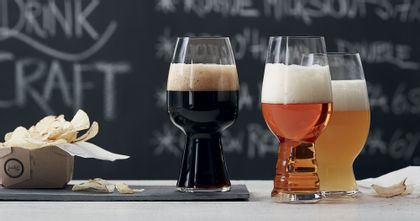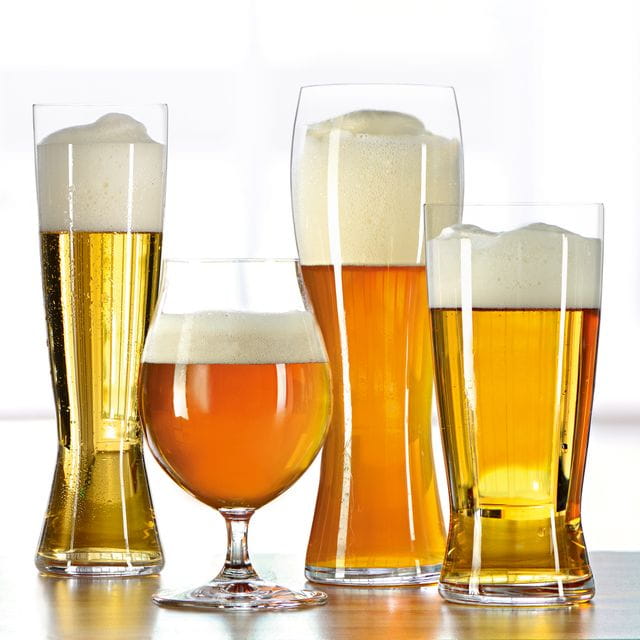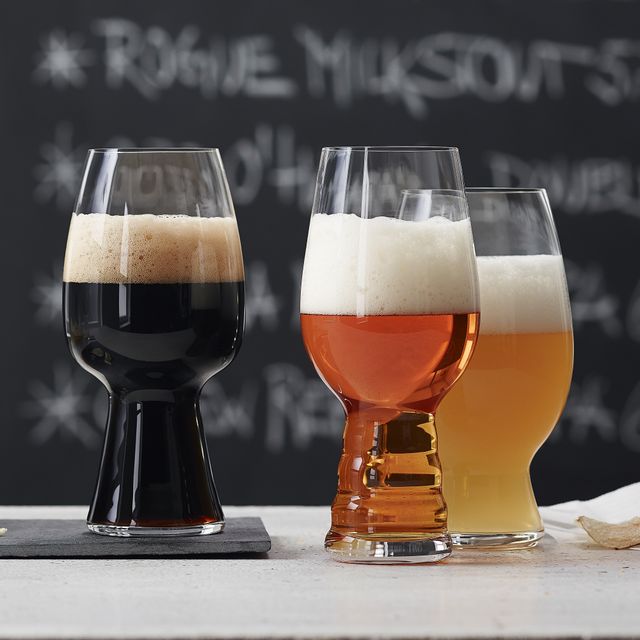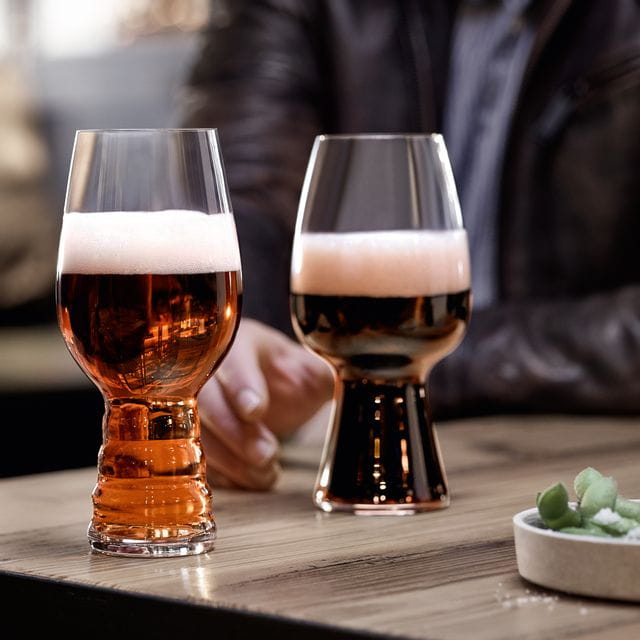Random Facts for Trivia Night
Sechs unterhaltsame Fakten über Bier

Kennen Sie das älteste Bier der Welt oder das alkoholhaltigste? Wissen Sie, in welchem Land am meisten Bier getrunken wird – und wo man fast ein Jahrhundert lang nichts getrunken hat? Hier sind sechs unterhaltsame Fakten über Bier, die bei Ihrem nächsten Treffen mit Freunden für Stimmung sorgen werden.

Bier besteht zu 90 % aus Wasser
Haben Sie sich auch schon oft gefragt, warum Bier so gut den Durst löscht? Nun, ein Großteil des Bieres wird aus dem Element des Lebens hergestellt – Wasser. Natürlich kann die Qualität des verwendeten Wassers einen erheblichen Einfluss auf das Bier haben. Viele Biere sind bekannt für ihren regional geprägten Geschmack, wie zum Beispiel das "Irish Stout" oder das "deutsche Lagerbier". Die Namen spiegeln also nicht nur die Art der Herstellung wider, sondern auch, dass das Bier den Charakter des örtlichen Wassers annimmt.
Natürliches Wasser enthält eine Reihe von Mineralien, Verbindungen und Mikroben, die für unterschiedliche pH-Werte sorgen. Zu den wichtigen Bestandteilen gehören Kalzium, Magnesium, Natrium, Chlorid, Bikarbonat und Sulfate. Diese können alles verändern, von der Farbe bis zum Geschmack, und ein erfahrener Brauer weiß, wie er diese Eigenschaften nutzen kann, um aus guten Bieren großartige Biere zu machen.
SPIEGELAU
Beer Classics 4er Set
Das alkoholreichste Bier der Welt stammt aus Schottland
Der Alkoholgehalt wird in Alcohol by Volume angegeben (ABV). Das „Snake Venom“ hat einen ABV von 67,5 % und wird in Schottland gebraut. Zum Vergleich: Die meisten Biere haben einen Alkoholgehalt zwischen 5 und 10 %.
Lewis Shand und Joh McKensize von Brewmeister haben das „Snake Venom“ kreiert. Bei dessen Premiere hat es eines ihrer anderen Biere von der Spitze des Rankings verdrängt, das „nur“ 60 % ABV hatte – offenbar eindeutig zu wenig!
Das potente Gebräu hat es in sich. Es wird aus getorftem Rauchmalz mit Zusatz von Ale- und Champagnerhefe hergestellt. Zu bedenken ist, dass schon Wodka und Whisky in der Regel 40 % Alkoholgehalt haben. Deshalb empfehlen die schottischen Brauer, nur 30-35 ml auf einmal zu trinken. Das Bier trägt nicht ohne Grund ein gelbes Warnschild am Flaschenhals!

Den höchsten Pro-Kopf-Bierkonsum pro Jahr hat die Tschechische Republik
Und das schon seit 26 Jahren. Der durchschnittliche Pro-Kopf-Verbrauch liegt bei 143,3 Litern pro Jahr. Geht es jedoch um Alkohol im Allgemeinen, rutscht die Tschechische Republik auf den vierten Platz ab. Was hat es also mit den Tschechen und dem Bier auf sich? Tschechien ist die Geburtsstätte des Pilsners, denn das Brauen geht auf das Jahr 993 zurück, und damals kostete Bier weniger als Wasser in Flaschen.
Kein Zweifel, Europa ist das Zentrum der biertrinkenden Welt und belegt insgesamt acht Plätze in den Top 10: Österreich (3.), Deutschland (4.), Polen (5.), Irland (6.), Rumänien (7.), Estland (9.) und Litauen (10.). Zwei afrikanische Länder belegen die weiteren Plätze: Namibia und die Seychellen.
Bier war in Island bis 1989 illegal
Island war das erste Land in Europa, das 1915 alle alkoholischen Getränke verbot. Zwar wurden andere alkoholhaltige Getränke bereits 1922 wieder legalisiert, doch das Bier blieb bis zum 1. März 1989 verboten. Warum hat es beim Bier so viel länger gedauert?
Der Grund dafür war der Unabhängigkeitskampf, den Island lange Zeit gegen Dänemark geführt hatte. Da die Dänen routinierte Biertrinker waren, galt es unter Isländern als unpatriotisch, eines zu trinken. Zudem befürchtete die Regierung, dass die Verfügbarkeit von billigem Bier den Alkoholmissbrauch fördern würde.
Erst 74 Jahre später, als die illegalen Einfuhren zunahmen, wurde das Verbot nach Protesten und auf Druck von anderen Nachbarländern aufgehoben. Dieses Datum wird heute in Island als "Tag des Bieres" gefeiert. Skál!

Es gibt eine Brauerei, in der man in einem Bierbecken schwimmen kann
In Tarrenz, im Westen Österreichs, gibt es einen Ort, an dem man seine Liebe zum Bier mit seiner Leidenschaft zum Schwimmen verbinden kann: Die Brauerei Starkenberger hat ein mit Bier gefülltes Poolbecken. Ein Bad darin ist nicht nur spektakulär, sondern soll auch der Haut guttun! Denn das Bier ist reich an Kalzium und anderen Vitaminen, die sich hautschonend auswirken. Zudem enthält der Hopfen beruhigende Substanzen, die zur Entspannung beitragen.
Es versteht sich von selbst, dass man das Poolbier nicht trinken sollte, und mit einigen hundert Euro für zwei Stunden ist es auch nicht gerade billig. Aber was für ein Erlebnis, das man auf seine Bucket List setzen kann!
2018 kreierte die australische James Squires Brewery ein Bier mit Hefe aus den 1790er Jahren
Dieses Bier im Porter-Stil heißt „The Wreck“ und wurde in Zusammenarbeit mit dem Queen Victoria Museum and Art Gallery (QVMAG) in Launceston und dem Australian Wine Research Institute (AWRI) in Adelaide hergestellt. Die zu seiner Herstellung verwendete Hefe stammt aus dem ältestem Handelsschiffswrack Australiens – der „Sydney Cove“. Das Schiff lief 1797 in der Nähe von „Preservation Island“ vor Tasmanien auf Grund und lag bis 1977 auf dem Meeresgrund. Wie durch ein Wunder waren die an Bord gefundenen Bierflaschen noch versiegelt!
David Thurrowgood, ein Chemiker und ehemaliger Konservator der QVMAG, machte sich daran, die in den Flaschen gefundene Hefe zu züchten, um ihre Geheimnisse zu lüften und ihren Charakter für das neue Bier wiederherzustellen. Von dunkler Farbe mit würzigen Schokoladennoten empfahl James Squires, das limitierte Bier langsam zu genießen, um seinen 220 Jahre alten Geschmack zu genießen!
Wir bei Spiegelau lieben alles an Bier
Standorte